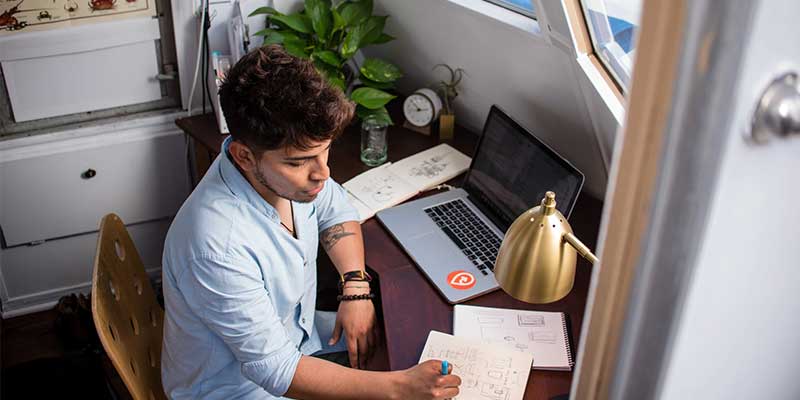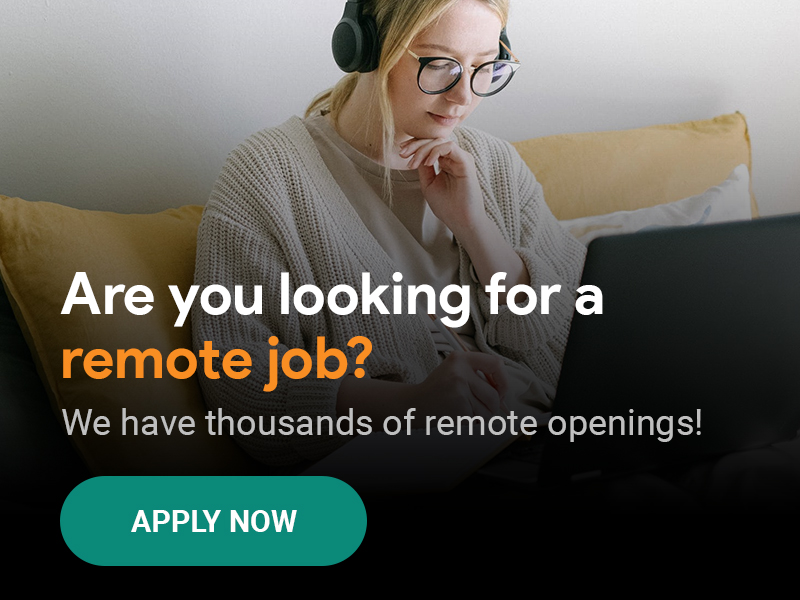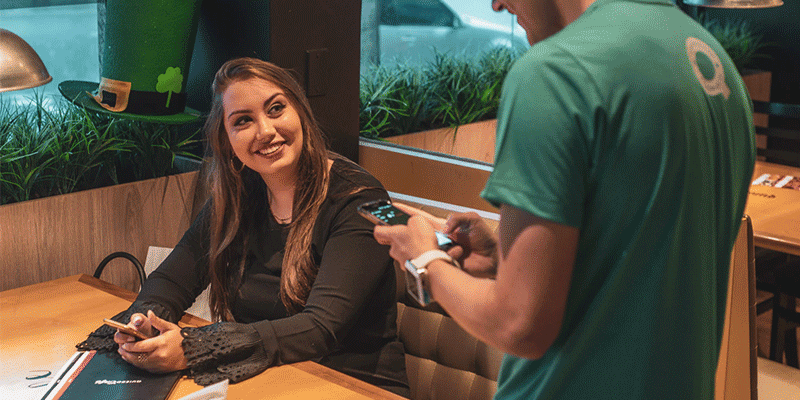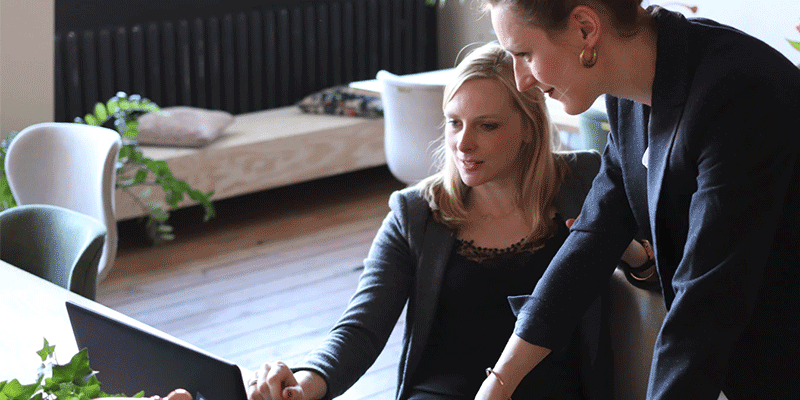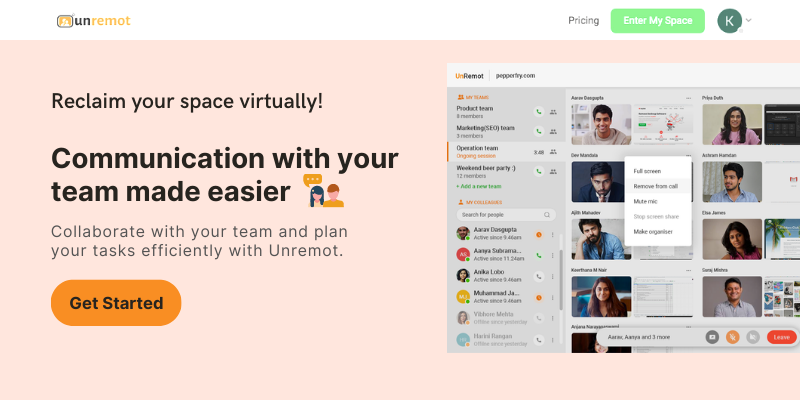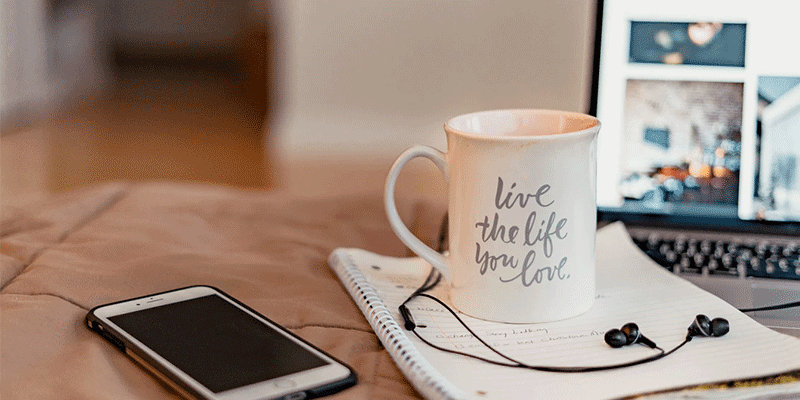Within a matter of days, the dialogue on remote work has shifted from it being “The future of work” to “The necessity of present”. But with so many people pushed into working remotely unprepared, many of us are left wondering how to keep the show going on, remotely!? If one of your concerns is how to conduct remote interviews or how to prepare for giving a remote interview, then you are at the right place!
What is remote interview?
Remote interviews are those interviews conducted via a phone call or a virtual interviewer where the interviewer and interviewee are located in different locations. To put in in simple words, the main element of remote interviews is that they do not ensure the direct presence of an interviewer or interviewee. Transmission equipment is a vital part to engage the two persons from distinct geographical locations.
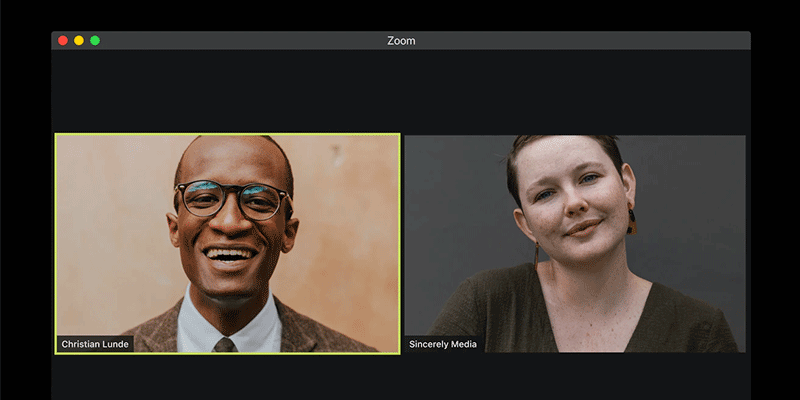 Read: How to work from home successfully?
Read: How to work from home successfully?
How to conduct a remote interview?
The three essential factors of conducting a remote interview are the presence of an interviewer, interviewee and most importantly, the transmission equipment. Remote interviews can be conducted in a few ways like telephonic interviews and virtual interviews. In both cases, it is necessary from an interviewer’s side to serve an advance notice about the date, timings, and the mode of the interview to the interviewee.
Things that both the interviewer and interviewee should ensure for a smooth remote interview:
- Transmission Equipment: This is the essential one, which is required to conduct a remote interview supported by proper installation of transmission equipment. This one is mainly for the concern of the interviewee as the interviewer would only inform the specific mode if they already have it properly installed. Meet & UnRemot are two recommended platforms for conducting online interview.
- Internet Connectivity: Proper connectivity of the internet is as important as the transmission equipment part (if it is a non-telephonic and a virtual interview). Many interviews get disrupted just because of the lack of proper internet connectivity. This should also be noted by the interviewee as she/he might be from a remote location.
- Plug-in the Earphones: Earphones make you feel comfortable and make the communication clearer. Even if it is a telephonic interview, using earphones is advisable as it makes you feel less worried and boosts your concentration on the interview. The interview in most of the cases casually extends more than 30 minutes. In that case, you will feel tension free from carrying phones for a long duration.
- Adhere to the timings (Obviously!): This should also be said as the test of punctuality. It is always better to be seated in the respective place with proper transmission equipment before 5 to 10 minutes. If there is any unavoidable circumstance which causes to cancel/postpone the interview at the moment, do communicate it or leave a message for them. In the end, you are all professionals!
- Accessories: A notebook, a pen, a water bottle, and other required accessories should be in an accessible place. You would obviously require a notebook and a pen if an interviewer asks you any technical or mathematical questions.
- An Isolated place: The only way of being disturbed during an interview is because of external factors like friends, family, guests, etc. Normally, an interview might exceed 30 minutes or even more than that. When you are at home, informing parents about the remote interview and being in an isolated place is advisable to avoid external disturbances.
Must read: Best Practices For Remote Onboarding
What are some common Remote job interview questions?
There isn’t much difference in the questionnaire part, be it a remote interview or be it a direct interview. Remote interview is just for the ease of the interviewees who are located in different geographical locations. Anyhow, it is noteworthy to prepare a few job interview questions which are listed below.
An interview doesn’t end without these basic questions like,
- Tell me about yourself
- What are your positives and negatives?
- Where do you see yourself down the line after 10 years?
While answering these questions, relate your conscience with the organization’s goals. Address how your nature would sync with the organizations’ expectations and also tell about yourself what you have done/achieved in the past.
 Read: Managing Remote Teams: 13 tips that will come handy
Read: Managing Remote Teams: 13 tips that will come handy
Other basic questions include:
1. How do you ensure a healthy work-life balance?
Exercise after work hours is always a good option and to feel free to take sufficient breaks. Ensuring a good sleep, maintaining a good diet plan, and taking a few off for vacations should be a part of the cycle to stay mentally fit.
2. How do you react when you encounter a problem?
Dividing the problem into small pieces and to put things into perspective helps us to understand the problem clearly. To stay in a positive way and work relentlessly is the most important factor which would help us to overcome the problem.
3. How do you avoid miscommunication during work?
Paying attention to minute details and listening until the end when someone is instructing is important to avoid miscommunication during work. To assume something also leads to miscommunication. So it is better to ask again if we are not clear about something instead of making wrong assumptions.
These are the basic questions that could be expected during an interview. Other than this, it is necessary to do the homework about the technical questionaries’ in what so ever the field you are master at.
Suggested read: 8 Remote Work Habits Of Every Productive Employee
How to ace a remote interview?
Remote interviews are the most common type of interviews in the modern world, says U.S. Census Bureau. Remote interview is a bit different from a direct interview as it does not involve a direct presence. Before attending a remote interview, it is important to be aware of a few guidelines.
- Prepare about the company: It is important and kind of a responsibility to learn what the company’s work is all about. The company website should be thoroughly researched, including each and every column and every information. It is also advisable to go through the LinkedIn profile of the company and a small gaze about the qualification of the employees is not a waste of time. If the company has been recognized by any news journals, won any awards, these are the few pieces of information that could be highlighted during the interview.
- Previous work experience: If you are not a fresher, no interview is complete without answering this question. The information about the previous work experience should mainly be narrated as to how the skills learned in the previous organization would be beneficial for them. This begins with an advantage because the need for time to devote to the training sessions for you is less compared to others.
- Be Polite: Usually, during a remote interview, some technical glitch occurs in a virtual interview. As it does not involve a direct presence, the interviewer might ask you to repeat the answer as he might not have understood your point. Being polite and genuine while answering the same question is important. Don’t lose your temper, because this will spoil your entire interview.
- Dress well: Dressing is not a problem if the interview is telephonic. Formal dressing is advisable for a virtual interview. Many don’t care to dress formally for a virtual interview. But it is always better to be in the safe zone with proper dressing.
- Show some enthusiasm: A company is hiring you for its team, to work peacefully as a family. Being enthusiastic and positive throughout the interview makes them feel how vibrant and energetic you are and how suitable you would be for their team. Being enthusiastic throughout the interview leaves a lasting impression.
- Eye communication: Again, this is not a case for a telephonic interview. During the virtual interview, look at the eye of the interviewer and talk. Failing to give eye contact might give an impression like you are nervous, don’t care much, lacks self-confidence, etc. In a virtual interview, eye contact means looking at the lens of your phone or a webcam.
- Emphasize your reliability: One of the main concerns of the employers when hiring anyone is if the candidate is reliable. As a prospective candidate, present yourself in a way to show them that you understand the importance and the necessity of being reliable.
- Background check: Talk to a few people and ask them if they have attended or know anyone of their friends have attended the interview with this company. Try to gain some insights about what kind of questions the company’s interviewer asks for. The main idea is to know what the company expects from its candidate. Knowing the expectation of the company helps us in preparing for the interview in the best possible way.
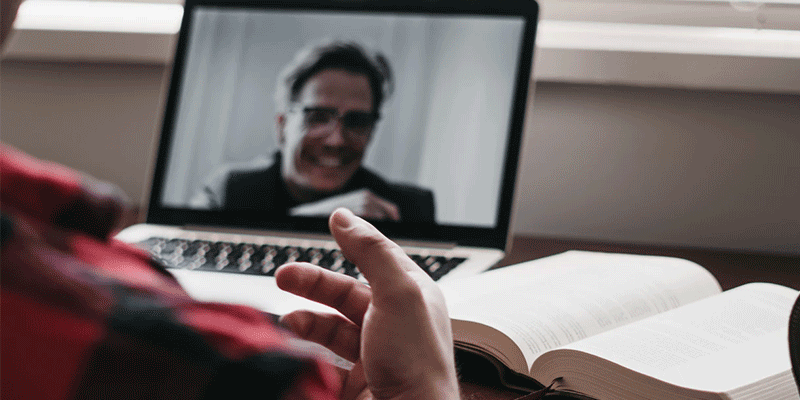 Read: Best Home Office Set Up For Remote Work
Read: Best Home Office Set Up For Remote Work
Tips to ace a remote interview
Showing some enthusiasm is an important thing as the work is going to be with a team. Eye communication is another important aspect. During a virtual interview, looking at the eyes means looking at the lens of the camera. Keep this in mind while attending an interview!
Interview questions for remote workers
Work from home interview questions are the few add-on questions one should be aware of before attending an interview. The questions are to check the capability of working independently. Some of them are as follows.
1. Communication: How effective are you in communicating as you are away from the office? Effective communication is required as in following the assigned tasks, updating the completion of assigned tasks, about the meetings, etc. You should make it clear that you are not going to rely on phone calls solely. Emailing is the better platform as it is recorded as proof and can be addressed clearly.
2. Working without supervision: How efficient are you in working without any supervision? This is a very important question from the eyes of an interviewer. This question should be addressed saying how strictly we adhere to the deadlines. The only way to prove that one works efficiently without supervision is by completing the tasks in the said deadline.
3. Workplace at home: What kind of workplace have you fixed at your place? The interviewers would be concerned if we have the proper facilities and requirements to work from home. This question can be addressed by mentioning the availability of our computer or laptop, proper WiFi connectivity, a room to work without disturbance, etc.
4. Distractions: What kind of distraction have you faced previously working as a remote worker? Be honest while answering this question and try to explain to them how you are dealing with overcoming the difficulties or distractions you faced.
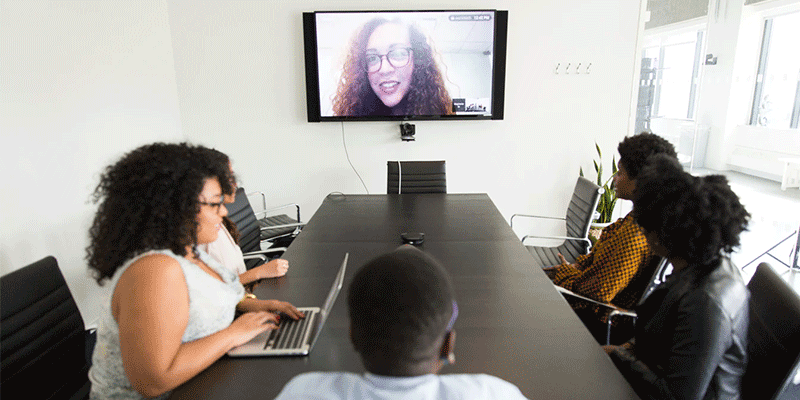 Read: 14 Best Remote Job Sites: Start your job hunt at the right place!
Read: 14 Best Remote Job Sites: Start your job hunt at the right place!
5. Previous experience: Do you have any previous experience working remotely? This question is asked to see how comfortable and reliable you are working from home and ensuring the work setup at your place. So you can use this is as a chance to address all the questions mentioned before. Like how you used to communicate effectively, how you worked without any supervision, the workplace setup you made at your home, and how you completed the assigned tasks in the specified deadlines. Explain to them briefly about the previous job and make them realize that you are more comfortable in your own way.
FAQs
1. What is a remote interview?
In a remote interview, the interviewer and the interviewee are located in a distinct geographical location and does not involve face-to-face interaction.
2. How is a remote interview different from a normal interview?
As we all know, a normal interview is a face-to-face interview. A remote interview, in simple words, does not involve a face-to-face interview.
3. What platform of communication is familiar with remote interview?
Telephonic interview is one of the means of communication. In a virtual interview, applications like Skype, WhatsApp video call, hangouts are used to communicate visually.
4. What are the frequently asked work from home interview questions?
‘How good are you working independently’, ‘do you effectively produce output without any supervision’, ‘how good are you in communication working away’ are the few frequently asked questions for a work from home interview.
5. How to conduct a remote interview?
Transmission equipment is necessary to conduct a remote interview. The interviewer should inform the interviewee about the mode of communication of the interview.
6. How to ace a remote interview?
Good dressing, good research about the work of the company, clear communication during the interview, and being polite throughout are few things to keep in mind in order to ace a remote interview.
7. How to engage in a good rapport with an interviewer?
Being enthusiastic, a good eye communication and a friendly smile in the first few minutes make the interviewer feel that you are confident, reliable and good in communication. This indeed helps in maintaining a good rapport with the interviewer.
8. What are the common interview questions I should prepare for?
Well, most of the interviews does not ends with few basic questions like ‘tell me about yourself’, ‘what are your positives and negatives’, tell me about your previous work experience’, ‘how do you maintain a healthy work-life balance’, etc.
Technical questions in the respective field of study would also be asked by the interviewer during an interview.

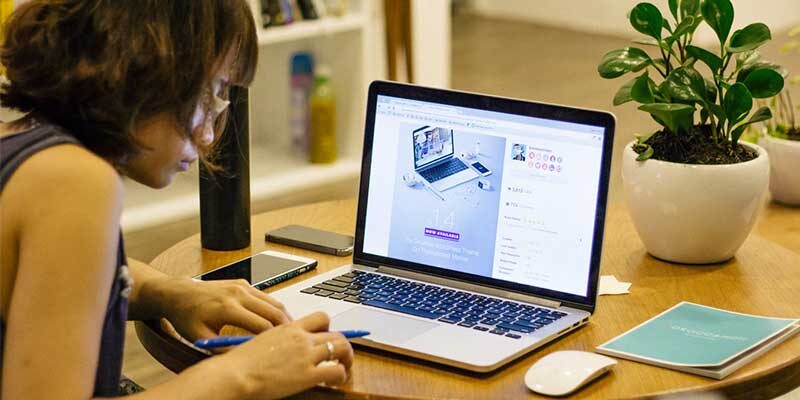
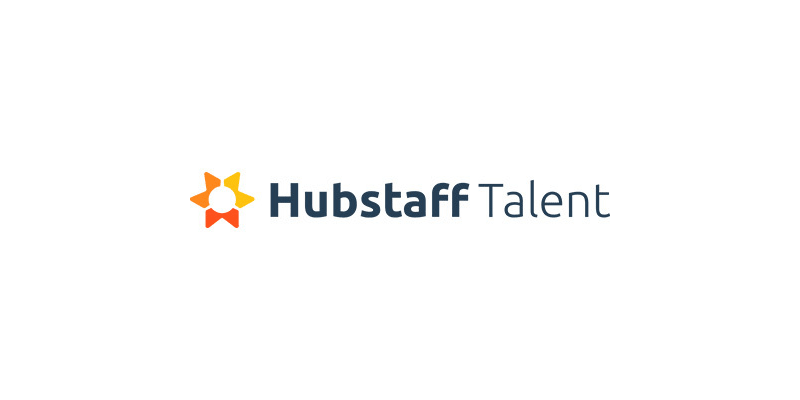
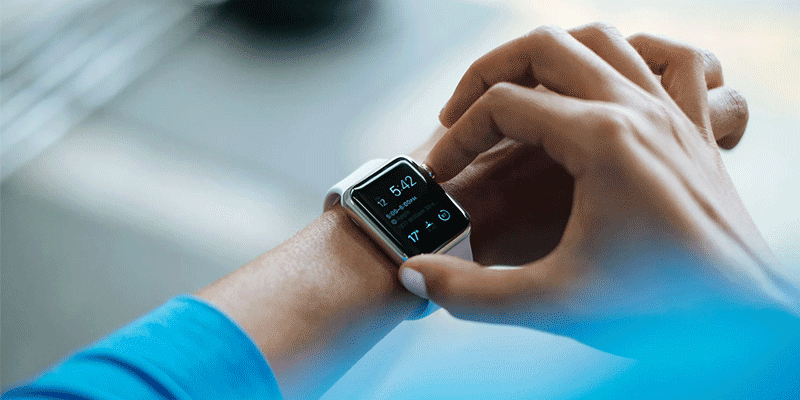


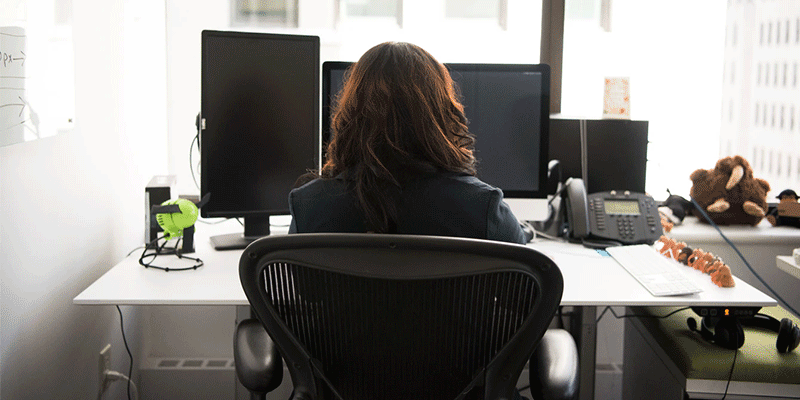
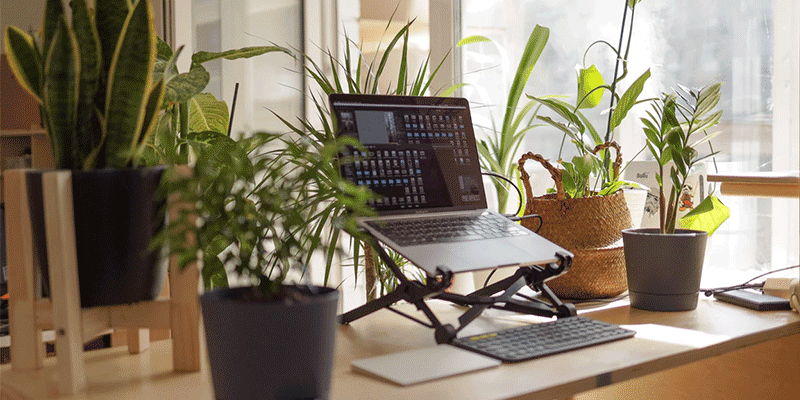
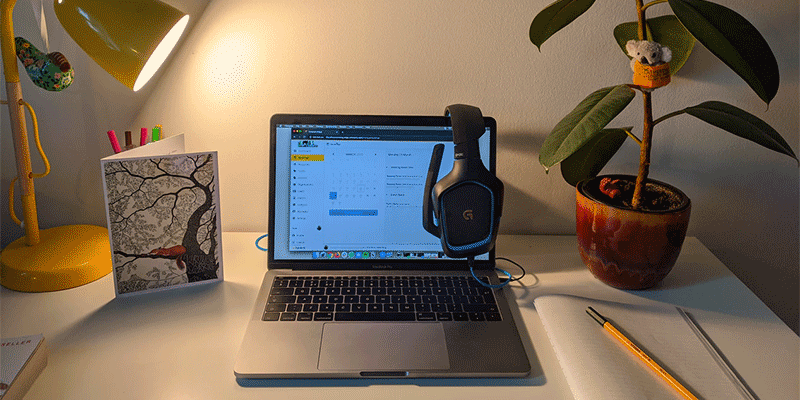 Read:
Read: 
